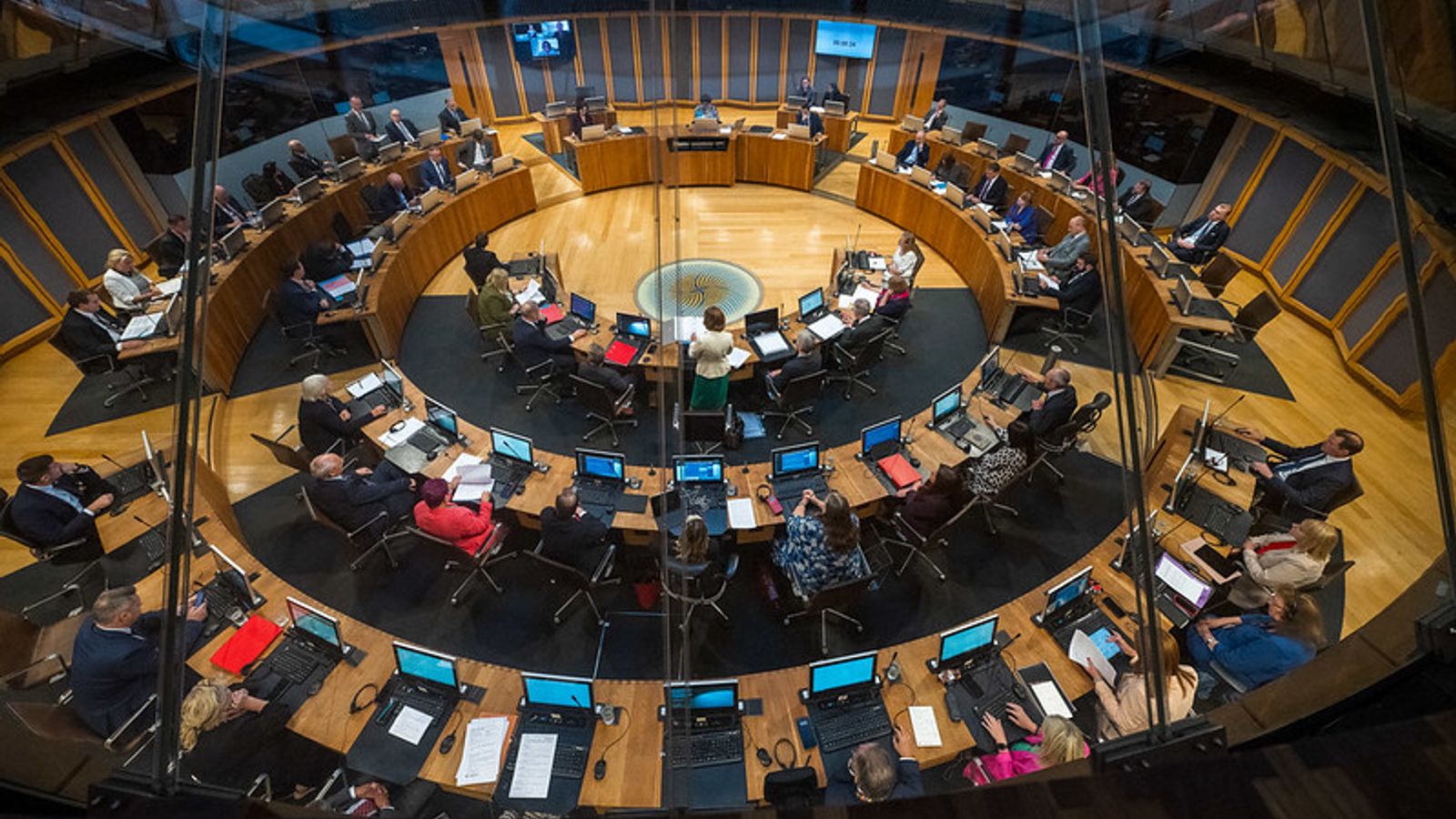U.K News
Senedd committee warns against making lying in politics a criminal offence

Trust in Politics: A Delicate Balance
The issue of trust in politics has long been a contentious topic, with many questioning the honesty of elected officials. In Wales, this debate has taken a significant turn as the Senedd, the Welsh parliament, has considered whether lying in politics should be criminalized. The Welsh government had initially proposed legislation to ban members of the Senedd from deliberately deceiving the public. However, the Senedd’s standards committee, tasked with investigating the matter, has cautioned against criminalizing intentional dishonesty. This decision comes after careful consideration of the potential implications and unintended consequences of such a move.
The proposal to criminalize lying in politics was first introduced by former Plaid Cymru leader Adam Price in July 2022. Price argued that trust in politicians had "fallen to an all-time low" and that tougher measures were needed to restore public confidence. The Welsh government, led by then-Counsel General Mick Antoniw, expressed support for the principle and committed to introducing legislation ahead of the 2026 Senedd election. However, as the proposal progressed, concerns began to emerge about its feasibility and potential impact on parliamentary privilege—a fundamental principle that protects members of parliament from legal consequences for statements made during parliamentary proceedings.
The Committee’s Warning: Risks Outweigh Benefits
After conducting a thorough inquiry, the standards committee concluded that introducing a new criminal offence for deliberate deception in politics was not the most effective solution. In a report published on Wednesday, the committee stated that it was "not convinced" that criminalizing lying would restore trust in the political system. Instead, it argued that the risks and unintended consequences of such a move currently outweigh the benefits. Among the concerns highlighted were the "considerable existing strain on the justice system," the right to freedom of expression under Article 10 of the European Convention on Human Rights, and the "difficulties of proving that a statement is false."
The committee also pointed out that the justice system is already under significant pressure, and adding new offences related to political deception could further burden it. Furthermore, the right to freedom of expression is a cornerstone of democracy, and criminalizing certain statements could have a chilling effect on political debate. The report also emphasized the practical challenges of determining whether a statement is intentionally false, as this often requires proving intent—a difficult task in many cases.
A Focus on Strengthening Existing Standards
Rather than pursuing criminalization, the committee recommended strengthening the existing standards procedures for members of the Senedd. This approach focuses on enhancing transparency, accountability, and ethical conduct within the political system. The report suggests introducing a clear definition of deliberate deception and updating the code of conduct to explicitly state that members "must not make deliberately misleading statements." These changes aim to provide a more robust framework for addressing dishonesty while avoiding the pitfalls of criminalizing speech.
A Welsh government spokesperson acknowledged the committee’s report, describing it as "detailed and thorough." The spokesperson added that the government would carefully consider the findings and recommendations before formally responding. This indicates that the Welsh government is open to exploring alternative measures to address the issue of trust in politics, even if criminalization is not the preferred route.
Broader Implications and Public Reaction
The debate over criminalizing lying in politics has sparked a broader conversation about the role of honesty in public office and the mechanisms available to hold elected officials accountable. While some may view the committee’s decision as a missed opportunity to address mistrust in politics, others argue that it reflects a nuanced understanding of the complexities involved. The report’s emphasis on strengthening existing standards procedures suggests a preference for addressing the issue through parliamentary accountability rather than the criminal justice system.
Public reaction to the proposal has been mixed. On one hand, there is widespread frustration with political dishonesty and a desire for greater accountability. On the other hand, there are concerns that criminalizing lies could infringe on free speech and create unintended consequences. The committee’s report acknowledges these competing perspectives and seeks to balance the need for accountability with the need to protect democratic principles.
The Road Ahead: Enhancing Accountability
As the Welsh government considers the committee’s recommendations, the focus is likely to shift toward improving the mechanisms for holding members of the Senedd accountable for their actions. This could include enhancements to the code of conduct, clearer penalties for breaches, and greater transparency in parliamentary processes. The committee has also suggested introducing a mechanism to unseat members found to have violated the code of conduct, which could provide a more direct way to address misconduct without resorting to criminal charges.
Ultimately, the challenge lies in finding a solution that restores public trust without compromising the principles of democracy. The Welsh government’s decision to explore alternative approaches reflects a recognition that this issue is too complex to be addressed through simple legislative measures. Instead, it requires a comprehensive strategy that balances accountability with the need to protect free expression and democratic debate. The road ahead will likely involve further consultation, refinement of existing standards, and a commitment to fostering a culture of honesty and transparency within the political system.


















